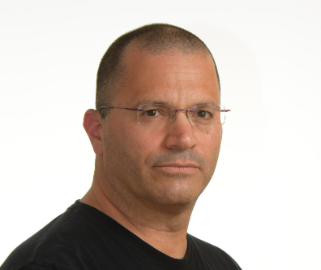David Enoch

How did you come to be an academic?
Since childhood I thought I wanted to be a lawyer. This changed during my first year studying law. I was disenchanted with the law, but I really liked my jurisprudence class. So I added philosophy. And I remember at some point writing a term paper – I was enjoying the writing and the thinking, I was listening to some music in the background, and I remember thinking – this can work for me. I think that shortly afterwards I already knew that this was what I wanted to do.
What is your research about? What arguments or views are central to your research?
I work in moral, political, and legal philosophy. A lot of what I’ve written about over the years is in metaethics, the part of moral philosophy that studies not moral questions themselves (what does a good life consist in?, what rights and duties do we have?, which actions are wrong and why?) but questions about these questions (are there moral facts?, what is their nature?, how can we come to know about them?, and so on). In metaethics, I defend a rather uncompromising kind of moral realism, the thesis that there are perfectly objective moral truths, which – when successful in our moral inquiries – we discover rather than create or construct.
In political philosophy I’ve been writing on issues surrounding the value of personal autonomy and consent, and I hope to develop a view that is robustly liberal, but that accommodates and indeed incorporates the insights of some of the critics of liberalism.
In legal philosophy, I’ve written against some traditionally central ways of doing jurisprudence. Instead, I like to ask normative and other questions about the law and about legal doctrines. So for instance, I’ve written about moral and legal luck, and about statistical evidence (in law and in epistemology).
What do you find most exciting about your research?
Some of the questions I think and write about are both deep and, I think, important (theoretically, and perhaps sometimes even practically). On good days, I find this combination exciting and also demanding. On bad days I feel the demanding part more strongly, and have doubts about importance…
What would you like to see change in academia (at large or your field of research)?
More admin, obviously.
Well, I don’t have a general thing I feel I can say here. There’s a host of smaller, more focused issues (and really, what kind of academic would I have been if I hadn’t had a host of things I’m happy to complain about?).
What developments would you like to see in Jurisprudence/Legal Philosophy?
I would like to see a better relationship between jurisprudence and philosophy as it’s done in philosophy departments. People doing jurisprudence should, of course, know about the law, and be natural interlocutors for their law-faculty-colleagues. But they should also do philosophy (of law) at the highest philosophical level, and for that they should speak to philosophers from philosophy departments, routinely publish in that discipline’s venues, have philosophical contribution in other philosophical areas. I think we’re already seeing this kind of change. But I would love to see more of it.
And much more diversity.
What are some of your non-academic interests, pursuits, or hobbies?
Music, but alas, only passively. And I swim (not passively, but slowly).
If you were stranded in a post-apocalyptic world and could bring only one book, music album, or film, which one would it be?
Probably music. Probably something by Bach. Or Mahler.
This interview was conducted in August 2023 by Eleanor Jerome (St Anne's, PPE, 2019) who is a philosopher working in feminist political philosophy and aesthetics.

